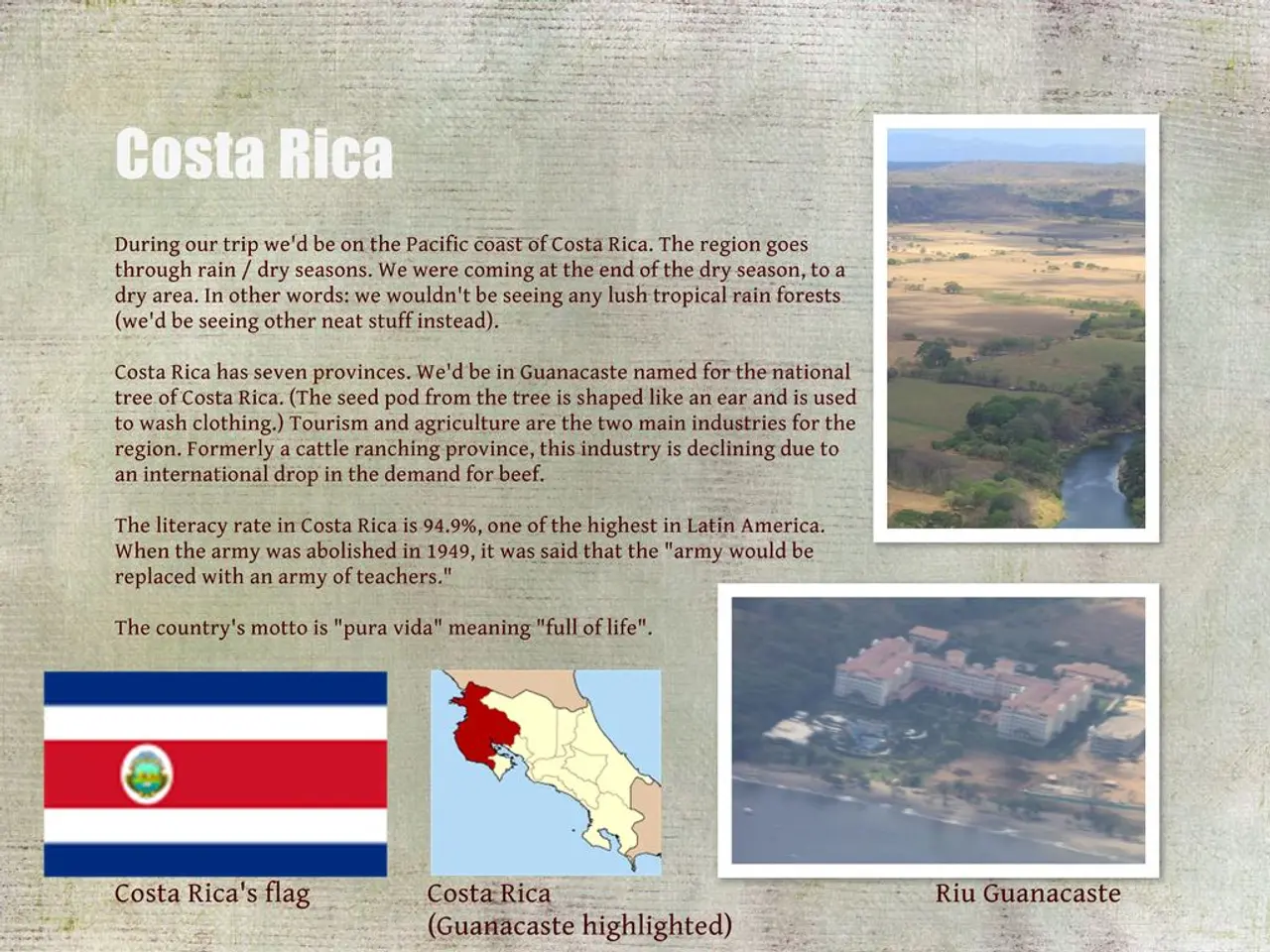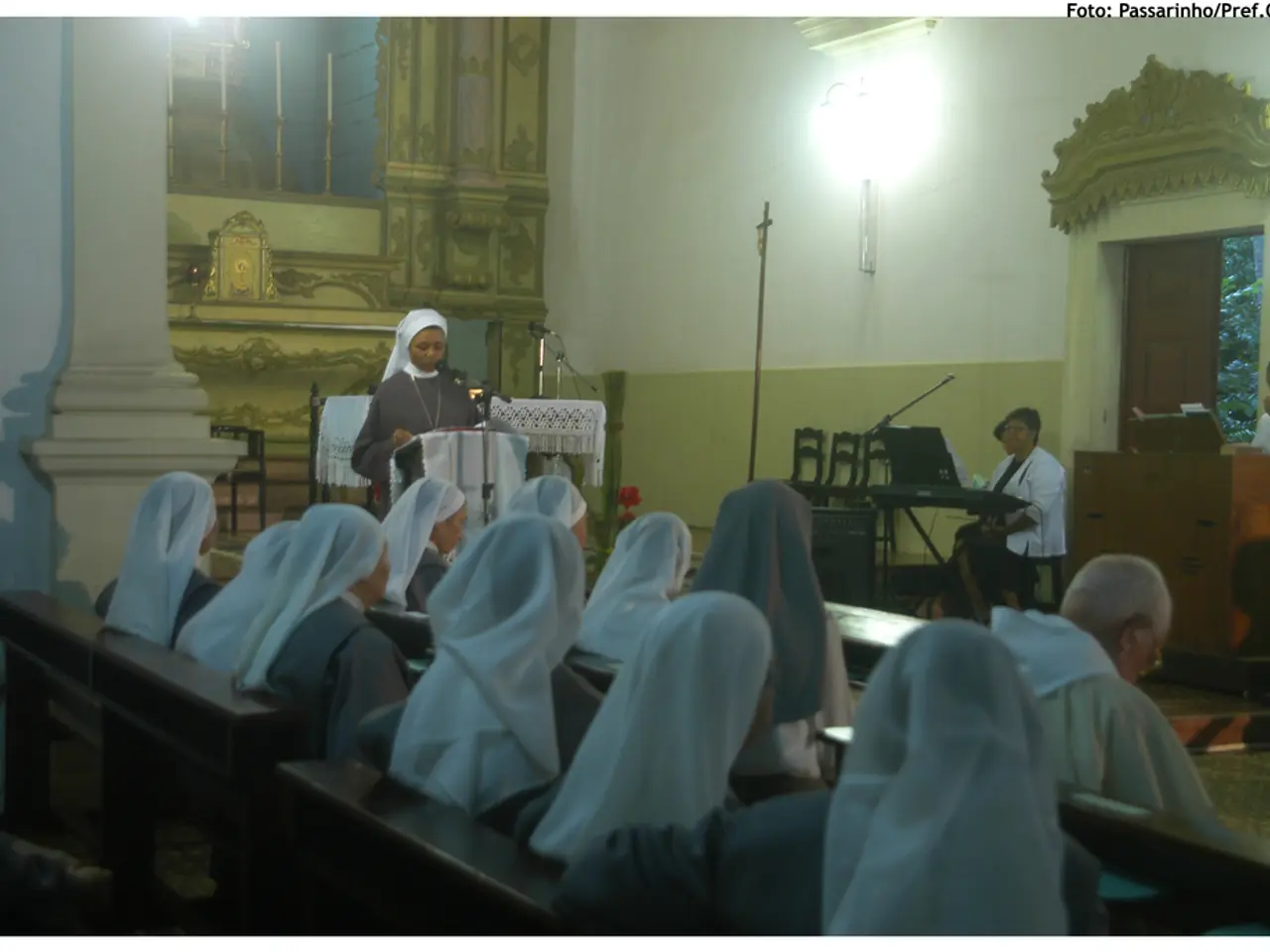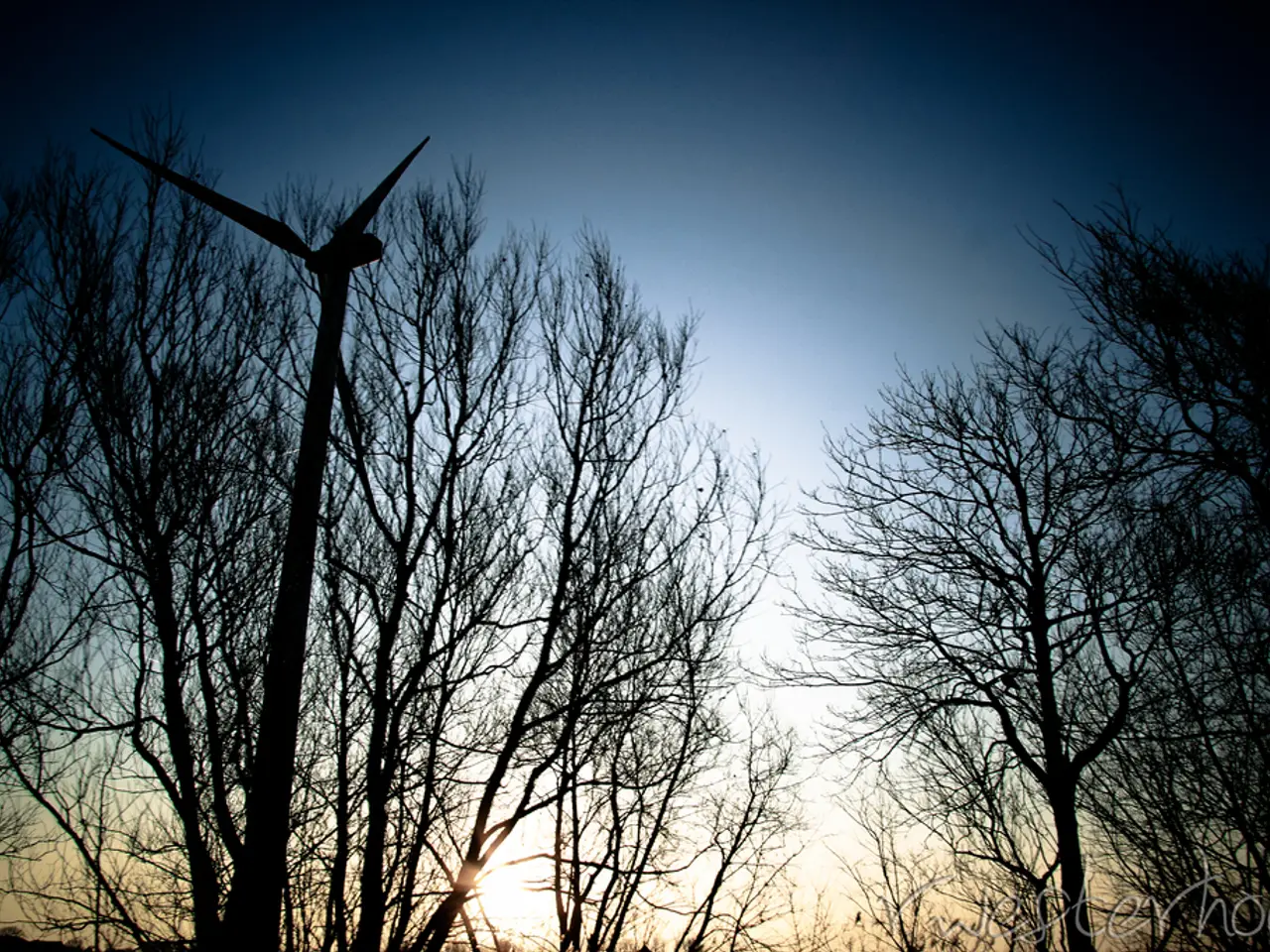Miskitu Human Rights Advocate Voices Concerns over Sandinista's Proposed Constitution Changes
Title: The Nefarious Constitutional Changes: A Threat to Nicaraguan Indigenous Populations and Human Rights
Written by John McPhaul
Anexa Alfred Cunningham, a 45-year-old Miskitu Indigenous member of the UN Expert Mechanism on the Rights of Indigenous Peoples, voiced her concerns on December 20, 2024, about the upcoming constitutional reforms spearheaded by Nicaraguan president, Daniel Ortega. Cunningham decisively labels these reforms "nefarious."
The proposed changes extend the presidential term from five to six years for Ortega and his current vice-president, Rosario Murrillo, tying the knot to formalize their co-presidency. Cunningham warns of the power consolidation these modifications would bring, further exacerbating repressive measures in a nation already suffering under a dictatorship.
Indigenous populations, such as the Miskitu, becoming especially vulnerable. The Miskitu people, targets because of their generation-long defense of their autonomy on their Caribbean Coast homeland, face increasing attacks from the Sandinistas determined to seize control of the land.
Recently, another Miskitu leader, Steadman Fagoth, was arbitrarily arrested and disappeared. Fagoth and recently named prisoner of conscience, Brooklyn Rivera, have been key leaders of the Miskitu since the 1980s. Ortega admitted to having custody of Rivera, accused of treason and conspiracy.
Experts agree that restoring democracy is the best hope to free prisoners like Rivera Fagoth and others. The possibility of such an occurrence remains elusive, as Ortega has already assumed control of the legislative, judiciary, and electoral powers of the state in 2016, effectively eliminating the rule of law.
The reforms underway will further limit civic spaces and dismantle remaining liberties, affecting not only those living in Nicaragua but also Nicaraguans in exile, like Cunningham, currently residing in Geneva, Switzerland. The reforms empower the Nicaraguan judiciary to bring charges against foreigners, both within and outside of Nicaragua.
The Havana Times reports that human rights, such as enshrinement of repression and institutionalization of the police state, will be compromised under the new constitution, opening the door for more arbitrary violence against the population. The reforms include religious persecution, placing the Army and Police under party control, and nullifying municipal and regional autonomy.
Cunningham calls upon the human rights community, including the UN, OAS, and media, to pressure for a return to democracy. Economic sanctions are necessary to apply pressure on Ortega's regime. However, Russia and China offer support to the regime, making change difficult.
Russia maintains a military presence in Nicaragua, training police forces in oppressive tactics, as reported by the U.S. Southern Command. A Miskitu Indigenous expert, hesitant to be identified due to frequent travel in Honduras' Miskitu territory, shares the increased level of repression faced by the opposition and Indigenous leaders.
The regime uses tactics of humiliation to instill fear, driving dissenting voices into silence and dispossessing the Mitskitu people of their property through systematic terror and usurpation. The result: countless acts of physical abuse, denial of COVID-19 treatment, freedom to access medical care, and the threat of disappearance. Individuals who dare to voice any dissent risk dire consequences, most prominent among them activists and human rights defenders.
[1] Maternity leave protections expanded from 12 to 13 weeks
[2] Authoritarian rule has been further consolidated (Human Rights Watch)[3] Democratic institutions have weakened (Freedom House)[4] Citizens who acquire a second nationality may have their Nicaraguan nationality stripped[5] The hurried and seemingly designed-to-quash-dissent reforms have drawn international criticism (Amnesty International)
- The nefarious constitutional changes in Nicaragua, labeled as such by Anexa Alfred Cunningham, a UN Expert Mechanism on the Rights of Indigenous Peoples member, are raising concerns in the realm of policy-and-legislation, politics, and general-news.
- The proposed reforms in Nicaragua, including religious persecution, placing the Army and Police under party control, and nullifying municipal and regional autonomy, are compromising human rights, such as the enshrinement of repression and institutionalization of the police state, further exacerbating war-and-conflicts in the country.







